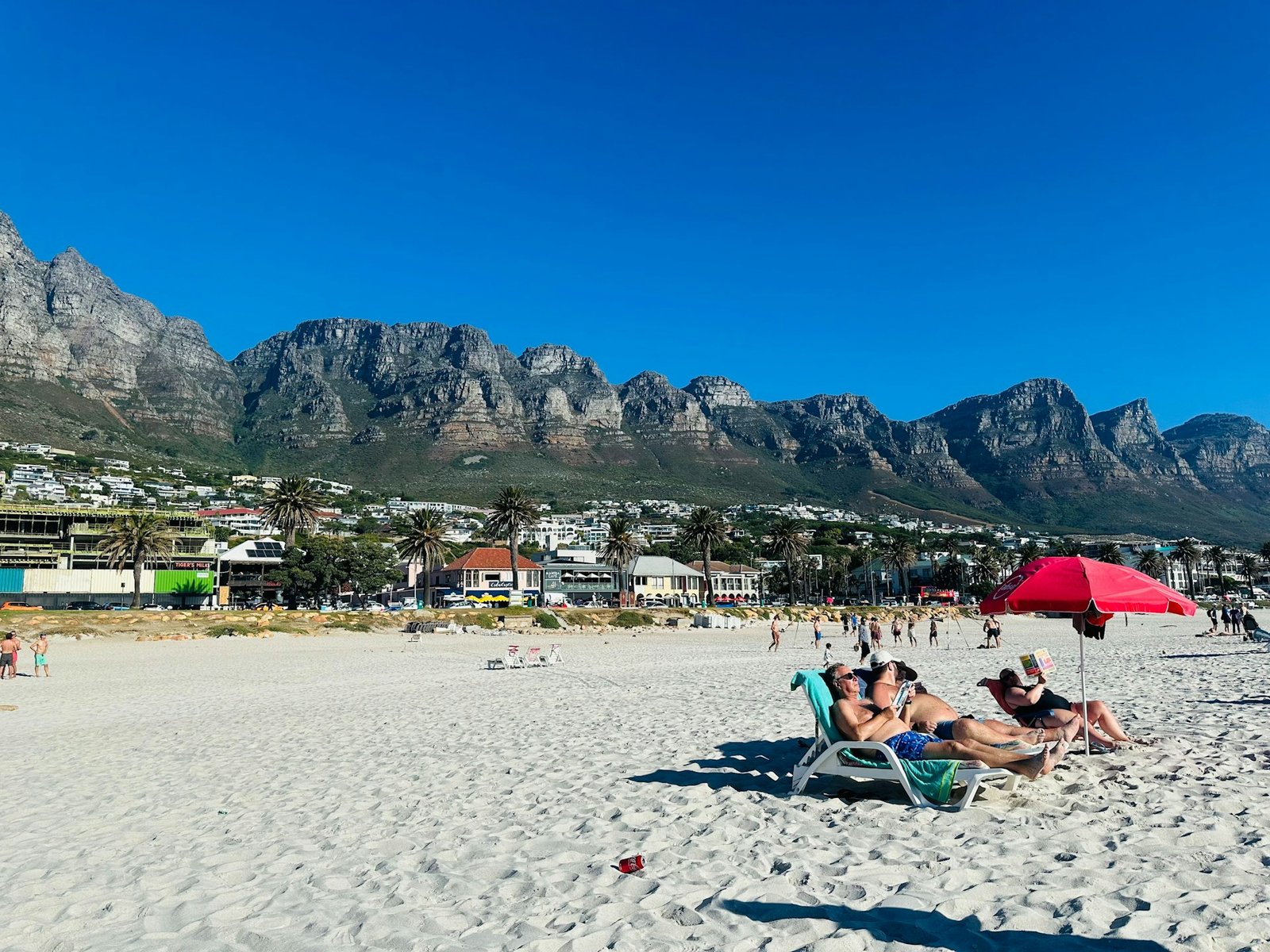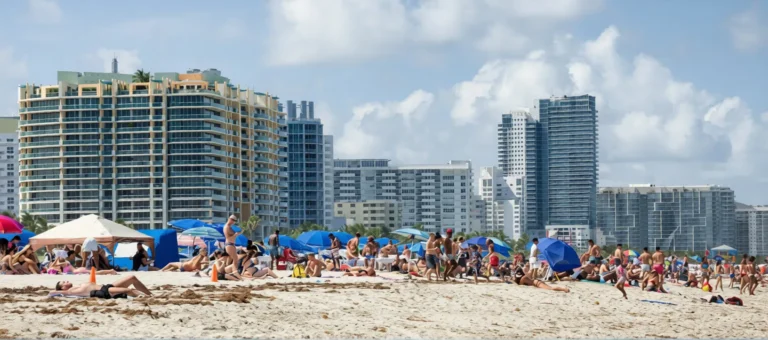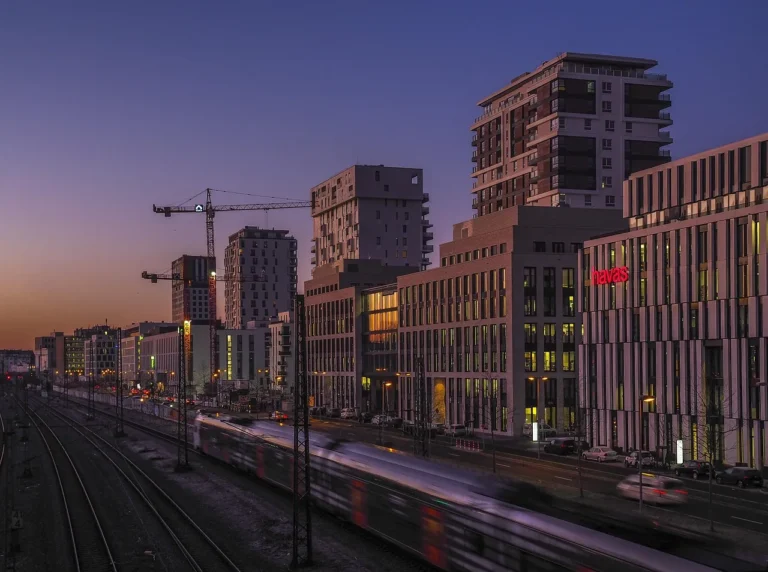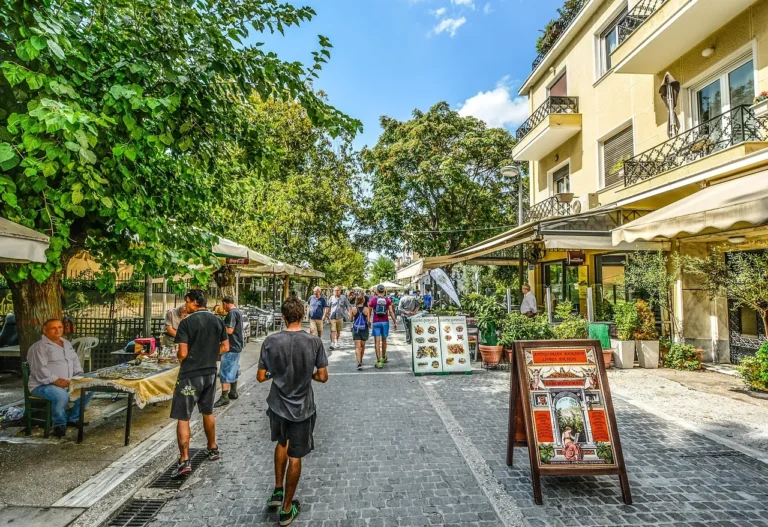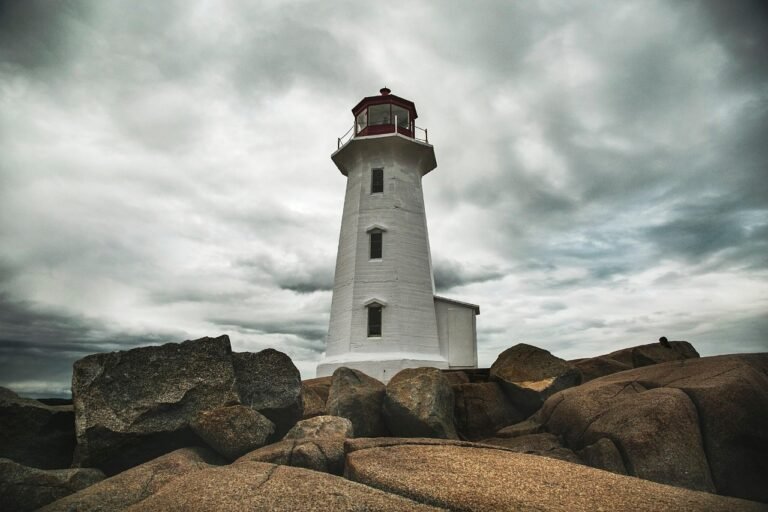Cape Town is a city that makes you question why you live anywhere else. I learned this the hard way during my first visit when I foolishly booked only four days, thinking it would be enough to “see the highlights.” Spoiler alert: I’m still discovering new corners of this magnificent city three visits later.
Cape Town isn’t just another pretty face on the travel Instagram feed (though it photographs like a dream). It’s a city that grabs you by the collar, spins you around, and leaves you dizzy with possibilities. From the dramatic backdrop of Table Mountain to the pastel-colored houses of Bo-Kaap, every turn offers something that’ll make you reach for your camera—or better yet, just stand there slack-jawed.
Why Cape Town Should Be Your Next Holiday Destination
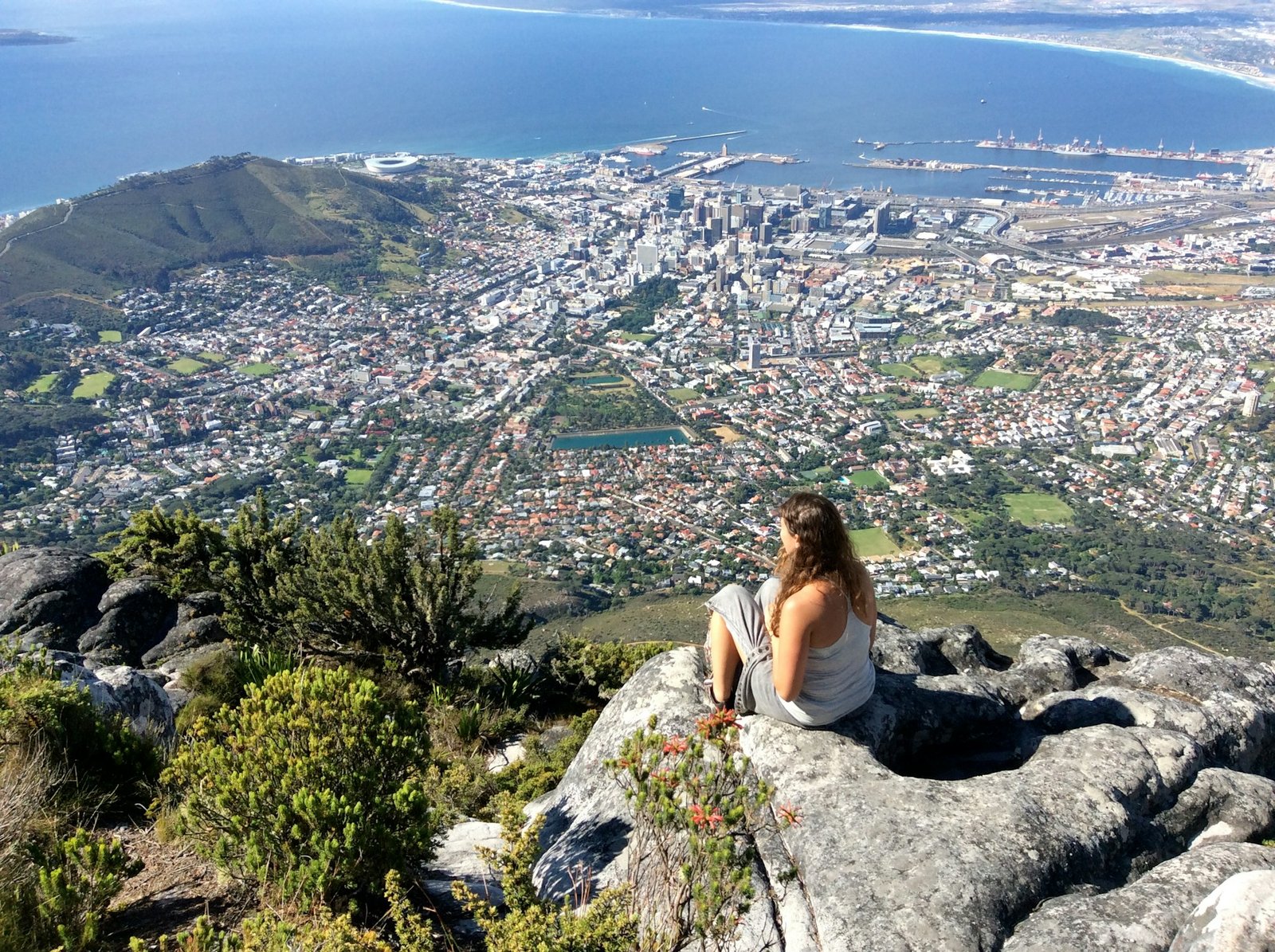
Here’s the thing about Cape Town—it’s got this rare ability to be everything to everyone without losing its soul. History buffs get their fix at Robben Island, wine enthusiasts lose themselves in nearby Stellenbosch, beach lovers find their paradise at Camps Bay, and adventure seekers… well, they might never leave.
The city sits at the confluence of two oceans, backed by mountains that look like they were carved by gods with excellent taste in dramatic landscapes. But what really sets Cape Town apart is how it wears its complex history—both beautiful and painful—with dignity and hope.
Table Mountain: The Crown Jewel That Never Gets Old
What makes it special: This flat-topped giant isn’t just Cape Town’s backdrop; it’s the city’s spiritual center.
You can’t visit Cape Town without ascending Table Mountain. It’s like going to Paris and skipping the Eiffel Tower, except Table Mountain is older, more impressive, and offers 360-degree views that’ll make you forget about that crick in your neck from looking up.
The cable car ride takes about five minutes, but those five minutes feel like you’re being lifted into another realm. Pro tip: Go up in the late afternoon for sunset, but book your tickets online beforehand. Nothing ruins a romantic sunset moment quite like standing in a two-hour queue while the sun sets without you.
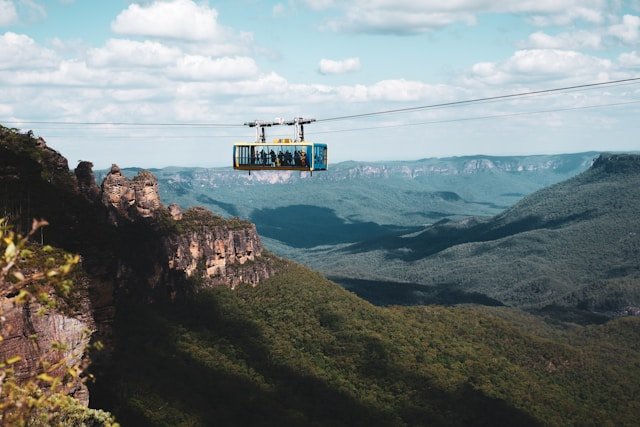
If you’re the hiking type, there are several trails to the summit. The Platteklip Gorge route is the most direct (and most punishing), while India Venster offers more scrambling adventure. Just remember—this mountain has claimed overconfident tourists before, so go prepared or stick to the cable car.
Practical Details:
- Cable Car: Adults R395 return (check current prices)
- Operating hours: 8:00 AM – 6:00 PM (weather dependent)
- Book online: Official Table Mountain Cableway
V&A Waterfront: Where Tourism Actually Works
Most waterfront developments feel like soulless shopping malls with a view. The V&A Waterfront somehow managed to avoid this fate, creating a space that locals actually enjoy alongside tourists.
The working harbor backdrop gives it authenticity that most similar developments lack. You can watch seals playing in the harbor while sipping wine, browse African art at the Zeitz Museum, or catch a ferry to Robben Island. The Two Oceans Aquarium deserves a few hours—their kelp forest exhibit is genuinely mesmerizing.
Must-visit spots at V&A:
- Zeitz Museum of Contemporary African Art
- Two Oceans Aquarium
- Market on the Wharf for local crafts
- Ferryman’s Tavern for waterside dining
Robben Island: A Journey Through South Africa’s Soul
Booking: Robben Island Museum
This isn’t your typical tourist attraction—it’s a pilgrimage. The ferry ride to Robben Island takes 30 minutes, giving you time to contemplate what you’re about to experience. Many tours are led by former political prisoners, adding a personal dimension that no guidebook can capture.
Nelson Mandela spent 18 of his 27 years in prison here, in a cell so small it makes airplane bathrooms seem spacious. Standing in that cell, listening to a former prisoner describe daily life, changes something in you. It’s heavy, necessary, and ultimately hopeful.
The island also has a surprising amount of wildlife, including a colony of African penguins that seems blissfully unaware of the island’s heavy history.
Bo-Kaap: Instagram’s Favorite Neighborhood (For Good Reason)
Bo-Kaap’s candy-colored houses have launched a thousand Instagram posts, but there’s substance behind the style. This is the heart of Cape Town’s Cape Malay community, with a culture that’s survived centuries of challenges.
The best way to experience Bo-Kaap isn’t to just walk around taking photos (though you will). Book a cultural tour or cooking class to learn about the community’s history and taste authentic Cape Malay cuisine. The spice combinations will make you rethink everything you thought you knew about flavor.
Cultural experiences:
- Bo-Kaap Museum for historical context
- Cooking classes at Bo-Kaap Cooking Tour
- Visit during evening prayer call for an authentic cultural moment
Camps Bay: Beach Life at Its Most Glamorous
If Camps Bay were a person, it would be that friend who looks effortlessly perfect even after a long flight. This palm-lined stretch of white sand, backed by the Twelve Apostles mountain range, is where Cape Town shows off.
The beach gets packed during summer (December-February), but that’s part of the charm. People-watching here is Olympic-level entertainment. The water’s cold enough to wake the dead (Atlantic Ocean, remember), but the scenery compensates for the shrinkage factor.
The sunset strip along Victoria Road offers some of South Africa‘s best sundowner spots. Grab a table at Café Caprice or The Roundhouse for views that’ll make you seriously consider relocating.
Cape Point: Where Two Oceans Pretend to Meet
Getting there: 1.5-hour drive from city center via Chapman’s Peak
Cape Point isn’t technically where the Atlantic and Indian Oceans meet (that’s at Cape Agulhas), but don’t let geography spoil a good story. The drama of this wind-swept peninsula, with its historic lighthouse perched on towering cliffs, makes it worth the journey.
The drive via Chapman’s Peak is half the adventure—possibly the most beautiful coastal road in the world. Just don’t attempt it if you’re afraid of heights or have a tendency toward car sickness.
At Cape Point, you can hike to the lighthouse, spot baboons (keep your car windows closed and your snacks hidden), and feel like you’re at the edge of the world. Because in many ways, you are.
Stellenbosch: Wine Country That Doesn’t Take Itself Too Seriously
Distance: 45 minutes from Cape Town
South African wine used to be the butt of jokes. Not anymore. The Stellenbosch region produces world-class wines in settings so beautiful they seem engineered for wine tourism.
Unlike some wine regions that feel stuffy and pretentious, Stellenbosch maintains a relaxed vibe. Tastings often include cheese pairings, cellar tours, and stories that make you feel like you’re visiting friends rather than customers.
Insert image: Stellenbosch vineyards with mountain backdrop
Top wine estates for first-timers:
- Babylonstoren (garden-to-table dining)
- Delaire Graff (luxury experience with art gallery)
- Boschendal (family-friendly with picnics)
- Klein Constantia (historic estate with vin de constance)
Book a tour through Cape Town Wine Tours if you want to taste without worrying about driving.
Kirstenbosch National Botanical Garden: Nature’s Cathedral
Entry: R65 for adults Best time: Spring (September-November) for wildflowers
Kirstenbosch sits on the eastern slopes of Table Mountain like nature’s own amphitheater. It’s been called one of the world’s most beautiful botanical gardens, and spending an afternoon here makes you understand why.
The garden showcases South Africa’s incredible plant diversity—fynbos, proteas, cycads, and succulents that look like they belong on alien planets. The canopy walkway offers a bird’s-eye view through the forest, while the sculpture garden adds artistic flair to natural beauty.
Summer concerts at the outdoor amphitheater are legendary—imagine listening to local jazz while the sun sets behind Table Mountain.
Boulders Beach: Penguin Paradise
Location: Simon’s Town (45 minutes from city center) Entry: R80 for adults
African penguins at Boulders Beach are ridiculously photogenic and seem to know it. They waddle around the granite boulders like they own the place (which, let’s be honest, they do).
The wooden boardwalks keep you at a respectful distance while still allowing close encounters. These aren’t zoo penguins—they’re wild birds who’ve chosen this particular beach as their home. The protected status means you’re seeing them in their natural habitat, behaving naturally.
Combine this with a visit to Simon’s Town, a charming naval town with Victorian architecture and excellent seafood restaurants.
Township Tours: Understanding Cape Town’s Full Story
Cape Town’s townships aren’t tourist attractions in the traditional sense—they’re living communities with complex histories. A responsible township tour offers context and understanding that’s crucial for grasping South Africa’s story.
Choose operators like Andulela Cultural Tours who work directly with communities and ensure tourism benefits residents. These tours often include visits to schools, community projects, and local homes where you’ll share meals and stories.
It’s not poverty tourism—it’s about connecting with people and understanding resilience, creativity, and community spirit that exists alongside challenging circumstances.
Planning Your Cape Town Itinerary
3-Day Minimum:
- Day 1: Table Mountain, V&A Waterfront, sunset at Signal Hill
- Day 2: Robben Island, Bo-Kaap exploration, Camps Bay afternoon
- Day 3: Cape Point day trip via Chapman’s Peak
5-7 Days (Recommended): Add Stellenbosch wine tour, Kirstenbosch Gardens, township tour, and a full day at the beaches.
10+ Days: Include Garden Route exploration, safari day trips, and deeper cultural experiences.
When to Visit Cape Town
Cape Town’s seasons are opposite to the Northern Hemisphere:
Summer (December-February): Peak season with perfect weather but crowds and higher prices Autumn (March-May): Ideal weather, fewer crowds, wine harvest season Winter (June-August): Rainy season but still mild, whale watching season Spring (September-November): Wildflower season, warming up, great value
I personally love visiting in autumn—the weather’s still perfect, but you feel like you have the city to yourself.
Getting Around Cape Town
Uber: Safe, reliable, and affordable for short distances Rental Car: Essential for wine country and Cape Point MyCiTi Bus: Good for certain routes, including airport connection Hop-on Hop-off Bus: Tourist-friendly but limited routes
Where to Stay
Luxury: Ellerman House, The Silo Hotel, Belmond Mount Nelson Mid-range: Cape Grace Hotel, The Townhouse Hotel Budget: Once in Cape Town hostel, Backpack hostels
Safety Tips (The Real Talk)
Cape Town is generally safe for tourists who use common sense:
- Don’t flash expensive jewelry or electronics
- Avoid walking alone at night
- Don’t leave anything visible in rental cars
- Stick to main tourist areas after dark
- Trust your instincts
The vast majority of visitors have trouble-free experiences. Don’t let fear prevent you from experiencing this incredible city.
Travel Recommendations and Bookings
| Category | Recommendation | Link | Description |
| Accommodation | The Silo Hotel | Official Site | Luxury hotel in converted grain silo with Table Mountain views |
| Wine Tours | Cape Town Wine Tours | Book Here | Full-day Stellenbosch tours with tastings and lunch |
| Table Mountain | Cableway Tickets | Official Site | Skip-the-line cable car tickets with return journey |
| Cultural Tours | Andulela Tours | Book Tours | Authentic township and cultural experiences |
| Robben Island | Museum Tickets | Official Booking | Ferry and guided tour with former political prisoners |
| Adventure | Abseil Africa | Book Experience | Table Mountain abseiling and adventure activities |
| Shark Diving | White Shark Diving | Book Dive | Great white shark cage diving in Gansbaai |
| Food Tours | Eating with Locals | Food Tours | Authentic Cape Malay and local cuisine experiences |
| Peninsula Tour | Day Trippers | Book Tour | Full-day Cape Point and penguins tour |
| Wine Estate | Babylonstoren | Reserve | Garden-to-table dining and wine tasting |
Cape Town isn’t just a destination—it’s a love affair waiting to happen. Every corner tells a story, every sunset paints a masterpiece, and every meal reminds you why you travel in the first place.
Sure, four days isn’t enough (trust me on this), but even a short visit will leave you planning your return before you’ve even left. This city has a way of getting under your skin, into your dreams, and onto your must-return list.
Pack light, bring an open mind, and prepare to fall hard for the Mother City. Just don’t say I didn’t warn you about the inevitable post-Cape Town blues.
Frequently Asked Questions
Q: How many days do I need for Cape Town as a first-time visitor? A: Minimum 3-4 days to see the highlights, but 7-10 days allows for a more relaxed pace and wine country exploration. Most first-time visitors wish they’d planned longer.
Q: Is Cape Town safe for tourists? A: Yes, Cape Town is generally safe for tourists who use common sense. Stick to main tourist areas, don’t flash valuables, and avoid walking alone at night. Most visitors have trouble-free experiences.
Q: What’s the best time to visit Cape Town weather-wise? A: March-May (autumn) offers perfect weather with fewer crowds. Summer (Dec-Feb) has peak weather but higher prices and crowds. Avoid June-August if you want guaranteed sunshine.
Q: Do I need a car to get around Cape Town? A: Not essential for city attractions—Uber works well. However, a rental car is highly recommended for wine country, Cape Point, and exploring at your own pace.
Q: How expensive is Cape Town compared to other destinations? A: Cape Town offers excellent value, especially with favorable exchange rates. Dining and activities are significantly cheaper than Europe/US, while accommodation ranges from budget-friendly to luxury.
Q: What should I pack for Cape Town? A: Layers are key—weather can change quickly. Bring sunscreen (high UV), comfortable walking shoes, light jacket for evenings, and swimwear for beaches.
Q: Is Table Mountain worth the hype? A: Absolutely. It’s not just about the views (which are spectacular) but the experience of being on top of one of the world’s most iconic landmarks. Book cable car tickets in advance.
Q: Should I book wine tours in advance? A: Yes, especially during harvest season (Feb-March) and weekends. Many estates require reservations for tastings and meals.
Q: What’s the tipping culture in Cape Town? A: 10-15% at restaurants, R20-50 for tour guides, and R10-20 for hotel staff. Tipping is expected and appreciated as wages are often low.
Q: Can I drink tap water in Cape Town? A: Yes, Cape Town’s tap water is safe to drink and tastes good. The city went through a severe drought but water restrictions have been lifted.

